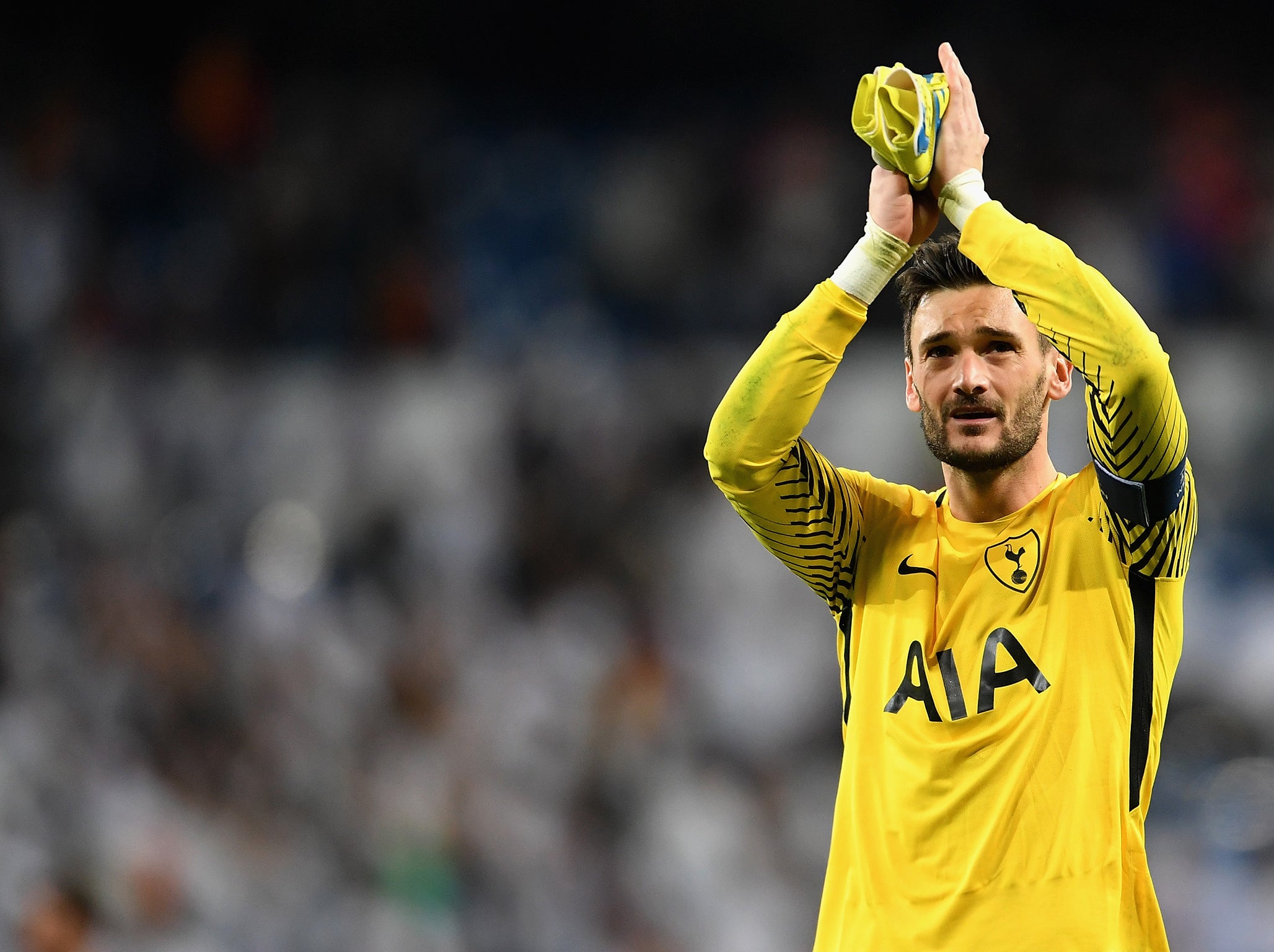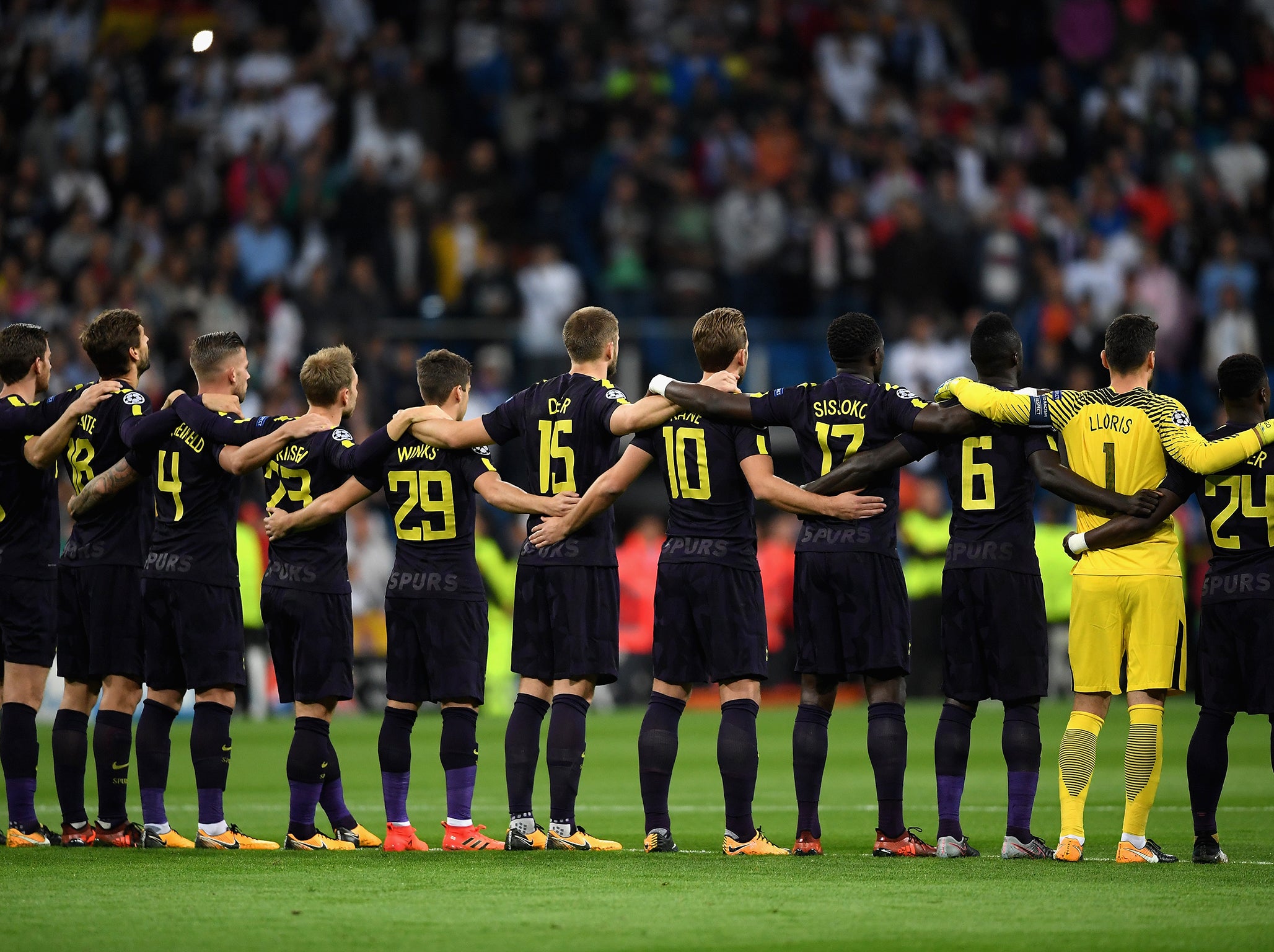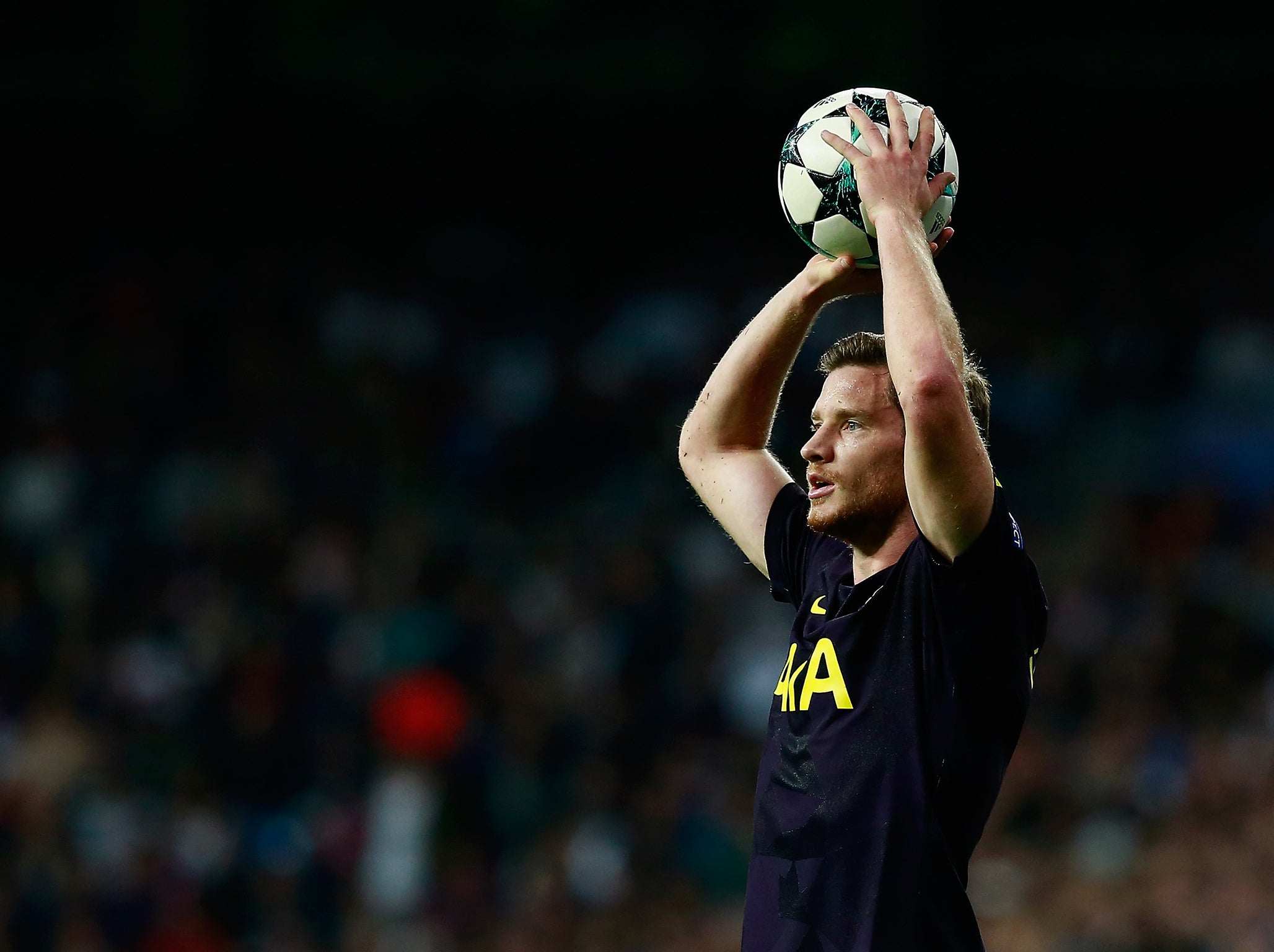Tottenham Hotspur's tactical flexibility shows they have learnt their lesson from last season's Champions League failure
Mauricio Pochettino sprang a tactical surprise when he deployed a conservative 5-3-2 formation against Real Madrid, but it was a stroke of tactical genius and shows how far his team have come

Your support helps us to tell the story
From reproductive rights to climate change to Big Tech, The Independent is on the ground when the story is developing. Whether it's investigating the financials of Elon Musk's pro-Trump PAC or producing our latest documentary, 'The A Word', which shines a light on the American women fighting for reproductive rights, we know how important it is to parse out the facts from the messaging.
At such a critical moment in US history, we need reporters on the ground. Your donation allows us to keep sending journalists to speak to both sides of the story.
The Independent is trusted by Americans across the entire political spectrum. And unlike many other quality news outlets, we choose not to lock Americans out of our reporting and analysis with paywalls. We believe quality journalism should be available to everyone, paid for by those who can afford it.
Your support makes all the difference.Last season was a rude realisation for Tottenham Hotspur that their way of playing – so sophisticated and successful in England – did not count for quite as much in Europe. That was the story of one point from four games against Monaco and Bayer Leverkusen, as they looked everything that in England they are not: simplistic, predictable, too easy for a good team to make them look stupid.
So what has been so impressive about this Champions League campaign is how they have learned new facets to their game, learning the adaptability that marks out the top teams at this level. That was clear against Borussia Dortmund, when Spurs did what they never do in England, defending on the edge of their penalty box and playing on the break. They were rewarded with a 3-1 win that has set up their progress from the group.
When Tottenham arrived in Madrid on Monday all the talk was that they would come here and try to dominate possession, just like they do in England. But in fact they played a different game: defending in 5-3-2, not giving Real Madrid space between the lines to break into, and with two big strikers up front in Harry Kane and Fernando Llorente. Last year they did play with a front two at times but Llorente is a far more conventional front man than Dele Alli, to say the least.
The last time Mauricio Pochettino paired Kane with another number 9 was with Roberto Soldado, back in the very first months of his Tottenham tenure. But here this return to a front two worked perfectly: Llorente did the tireless work that made Kane’s life easier. He nearly won a penalty and could have finished with two assists.
The whole night was a triumph for Spurs’ new flexibility and proof that concepts of football are not the same as tactical details. The plan can change even if the beliefs do not.
“We are a flexible team able to play in different structures, always keeping the characteristics of what we want,” said a delighted and vindicated Pochettino afterwards. “From now on we can include different nuances in our play.”

Pochettino then explained that that this is exactly what Spurs did not have last year – different nuances – but that this was the only way to get results against sides like Dortmund and Real Madrid. If Spurs had opened up and pushed the wing-backs high and wide on Tuesday they would have been taken to pieces.
But Jan Vertonghen, drafted in at left wing-back, never pushed too far forward, even Serge Aurier picked his moments and the Spurs back five held strong.
“I knew you would be surprised by the starting 11,” Pochettino smiled afterwards. “But it’s important to work and find different options and surprise our opponents, to be flexible and have different ways to play.”

Pochettino loves to say that his football is more about philosophy than formations and he made the same point again here. For the next two games against Real and Dortmund the plans will likely change again, and no-one would bet against Spurs picking up more crucial points.
“You know we can play three or four at the back, one striker or two strikers, two or three in midfield,” he said. “We are flexible. In different circumstances we decided to work and play in that way. We are happy because in the end, it worked.”
Join our commenting forum
Join thought-provoking conversations, follow other Independent readers and see their replies
Comments